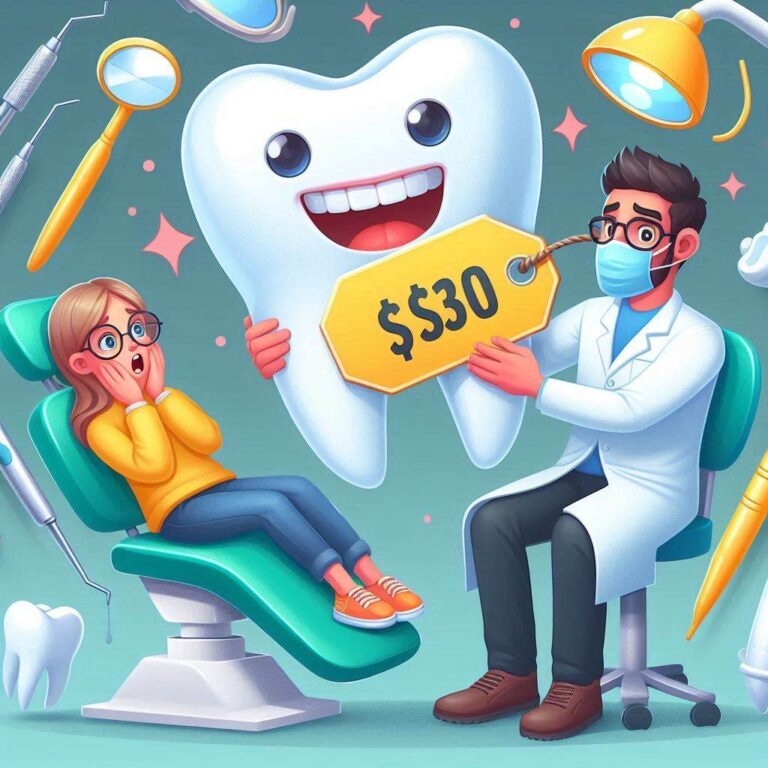Tooth Extraction Cost Without Insurance
Tooth extraction is a common dental procedure that many people undergo at some point in their lives. Whether it’s due to severe decay, infection, overcrowding, or trauma, removing a tooth is often necessary to maintain oral health. However, for those without dental insurance, the cost of tooth extraction can be a significant concern. This article delves into the intricacies of tooth extraction costs without insurance, providing a detailed breakdown of factors that influence pricing, average costs, and tips to manage expenses. By the end of this guide, you’ll have a clear understanding of what to expect and how to navigate the financial aspects of this essential dental procedure.

1. Introduction to Tooth Extraction
Tooth extraction is the process of removing a tooth from its socket in the jawbone. While the idea of having a tooth pulled may sound daunting, modern dentistry has made the procedure relatively quick and painless. However, the cost of tooth extraction can vary widely, especially for those without dental insurance. Understanding the factors that influence pricing and exploring affordable options can help you make informed decisions about your oral health.
2. Why Tooth Extraction is Necessary
Tooth extraction is often recommended for several reasons:
- Severe Tooth Decay: When a tooth is too damaged to be repaired with a filling or crown, extraction may be the only option.
- Gum Disease: Advanced periodontal disease can loosen teeth, necessitating their removal.
- Impacted Teeth: Teeth that fail to emerge properly, such as wisdom teeth, may need to be extracted.
- Overcrowding: Removing teeth can create space for orthodontic treatment.
- Trauma: Teeth damaged by injury may need to be extracted if they cannot be saved.
3. Types of Tooth Extractions
Simple Extraction
A simple extraction involves removing a tooth that is visible in the mouth. This procedure is typically performed under local anesthesia and is less expensive than surgical extraction.
Surgical Extraction
Surgical extraction is required for teeth that are not easily accessible, such as impacted wisdom teeth. This procedure involves making an incision in the gum and may require general anesthesia or sedation, increasing the overall cost.
4. Factors Influencing Tooth Extraction Costs
The cost of tooth extraction without insurance can vary based on several factors:
Type of Extraction
- Simple extractions are generally less expensive than surgical extractions.
- Wisdom teeth removal, especially impacted ones, tends to be more costly.
Geographic Location
Dental costs vary by region. Urban areas with higher living costs often have more expensive dental services compared to rural areas.
Dentist’s Experience
Experienced dentists or oral surgeons may charge higher fees for their expertise.
Complexity of the Case
Complicated cases, such as severely impacted teeth or those requiring bone grafting, can increase costs.
Additional Procedures
X-rays, anesthesia, and post-extraction care can add to the total expense.
5. Average Cost of Tooth Extraction Without Insurance
Simple Extraction Costs
On average, a simple extraction costs between 75and75and300 per tooth.
Surgical Extraction Costs
Surgical extractions can range from 150to150to650 per tooth, depending on the complexity.
Wisdom Teeth Removal Costs
Removing wisdom teeth can cost between 225and225and600 per tooth for simple cases and up to $1,000 or more for impacted teeth.
6. Cost Breakdown by Tooth Type
| Tooth Type | Average Cost (Without Insurance) |
|---|---|
| Incisor or Canine | 75−75−200 |
| Premolar | 100−100−250 |
| Molar | 150−150−300 |
| Wisdom Tooth | 225−225−1,000+ |
7. Hidden Costs to Consider
Consultation Fees
Many dentists charge a consultation fee, which can range from 50to50to200.
X-rays and Diagnostics
X-rays are often necessary before extraction and can cost 25to25to250.
Anesthesia and Sedation
Local anesthesia is usually included in the extraction cost, but sedation or general anesthesia can add 100to100to500.
Post-Extraction Care
Medications, follow-up visits, and aftercare supplies can add to the total cost.
8. Affordable Alternatives for Tooth Extraction
Dental Schools
Dental schools often offer discounted services performed by students under supervision. Costs can be 30-50% lower than private practices.
Community Health Clinics
These clinics provide low-cost or sliding-scale fees based on income.
Payment Plans and Financing
Many dental offices offer payment plans or work with third-party financing companies to make procedures more affordable.
9. Tips to Reduce Tooth Extraction Costs
- Compare Prices: Get quotes from multiple dentists to find the best rate.
- Ask About Discounts: Some dentists offer discounts for cash payments or uninsured patients.
- Consider Dental Savings Plans: These plans provide discounts on dental services for an annual fee.
10. Risks of Delaying Tooth Extraction
Delaying a necessary extraction can lead to:
- Severe pain and infection
- Damage to surrounding teeth
- Increased treatment costs in the long run
11. Conclusion
Tooth extraction costs without insurance can vary widely based on factors like the type of extraction, location, and complexity of the case. By understanding these factors and exploring affordable alternatives, you can manage the financial burden while prioritizing your oral health.
12. FAQs
Q1: How much does a tooth extraction cost without insurance?
A: Simple extractions cost 75−75−300, while surgical extractions can range from 150to150to1,000 or more.
Q2: Are there ways to reduce tooth extraction costs?
A: Yes, consider dental schools, community clinics, or payment plans to make the procedure more affordable.
Q3: What happens if I delay a necessary tooth extraction?
A: Delaying extraction can lead to severe pain, infection, and higher treatment costs in the future.
13. Additional Resources
- American Dental Association (ADA)
- National Institute of Dental and Craniofacial Research (NIDCR)
- Dental Savings Plans


